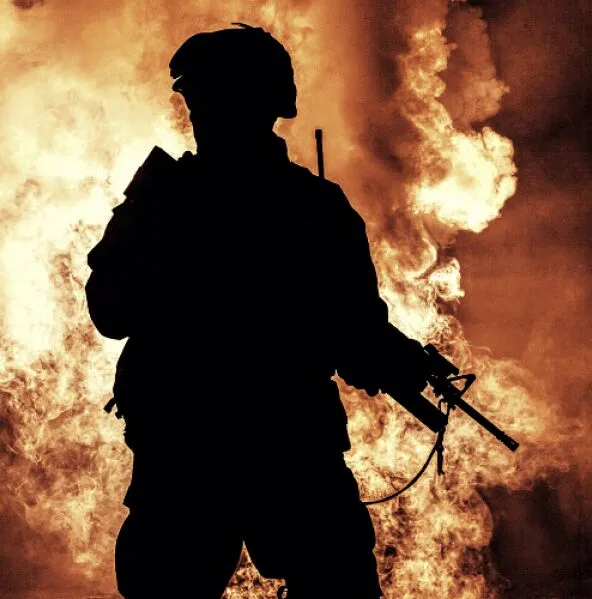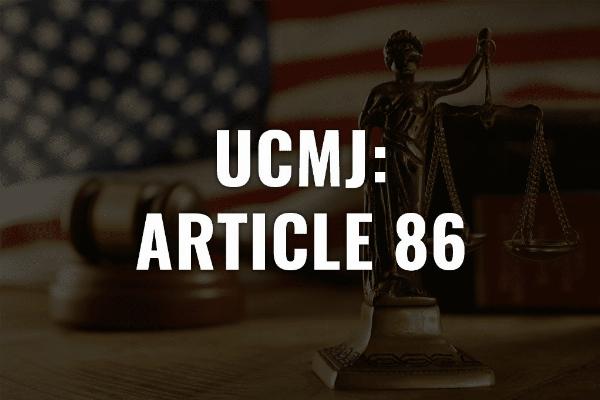 Link Insertions on Real Blogs – Quick Wins for Better Rankings!
Link Insertions on Real Blogs – Quick Wins for Better Rankings!
Distinguishing Between Free Speech and Insubordination Under Article 91 UCMJ
Written by Bilecki » Updated on: June 17th, 2025

In civilian life, free speech is a right that allows individuals to express opinions and dissent without fear of punishment. However, in the military, speech has a unique relationship with rules, especially under Article 91 of the Uniform Code of Military Justice (UCMJ). This article specifically addresses insubordinate conduct, including contemptuous words or disrespectful actions toward a warrant officer, noncommissioned officer, or petty officer. Given the structured hierarchy of the military, maintaining order and respect within the ranks is essential, which often requires restrictions on speech that would otherwise be protected in civilian settings.
The distinction between free speech and insubordination under Article 91 UCMJ is crucial for service members to understand. Insubordination can lead to severe consequences, including reprimands, reduction in rank, or even a court-martial. Knowing where free speech ends and insubordination begins helps service members maintain professionalism while respecting their own viewpoints.
Understanding Article 91 UCMJ and Insubordination
Article 91 UCMJ defines insubordinate conduct as behavior that shows disrespect, contempt, or disobedience toward a superior enlisted member, specifically those in the positions of warrant officers, noncommissioned officers (NCOs), and petty officers. Actions that qualify as insubordinate include spoken words, gestures, written messages, or even neglect of duty if they demonstrate disrespect or contempt toward a superior. The article exists to uphold the authority and discipline necessary for the military to function effectively.
Insubordination under Article 91 UCMJ is often broader than what would be considered disrespectful in civilian contexts. While free speech may protect critical or even heated expressions toward authority figures in civilian life, the military expects a higher standard of respect to avoid undermining command and morale. As a result, the same words or actions that might be harmless in civilian contexts can be construed as insubordinate conduct within the military.
The Role of Free Speech in the Military
The First Amendment protects freedom of speech in the United States, but military members have certain restrictions under the UCMJ that their civilian counterparts do not face. This difference arises because military service requires a unique level of discipline and obedience to preserve the chain of command, ensure unit cohesion, and protect national security. Military courts, including the Supreme Court, have upheld restrictions on free speech within the armed forces, emphasizing that they are necessary to maintain order.
This does not mean that service members do not have any right to express their opinions; rather, their right to do so is limited in ways that ensure military objectives and order are not compromised. When speech crosses into disrespect or shows open contempt for superior officers, it can quickly be deemed insubordination under Article 91.
Examples of Acceptable Free Speech vs. Insubordinate Conduct
Distinguishing between free speech and insubordination often comes down to intent, language, and the context of the speech. Here are examples of how similar expressions may be interpreted differently under Article 91 UCMJ:
Respectful Disagreement
1.Acceptable: A service member raises a concern about a directive in a respectful and formal manner, such as, "Sir, I respectfully disagree with this approach and believe there might be another way to achieve our objective."
2.Insubordination: Saying, "This directive is stupid, and I don’t know why anyone would follow it," in the presence of other service members, could be seen as undermining the authority of the officer in charge.
Constructive Feedback
1.Acceptable: Providing suggestions on a policy or order in a written format, such as in a feedback session or formal request, allows service members to express concerns while respecting the chain of command.
2.Insubordination: Publicly criticizing the policy in a sarcastic or disparaging tone, especially in front of peers, can create a perception of open disrespect.
Expressing Personal Views
1.Acceptable: Speaking about personal beliefs in private settings without linking them to one’s military role or command decisions is generally permitted.
2.Insubordination: Making statements that ridicule or express disdain toward a superior officer’s judgment, especially when done publicly, would likely fall under Article 91 violations.
Consequences of Insubordination Under Article 91 UCMJ
Violating Article 91 can have significant consequences, ranging from nonjudicial punishment (NJP) to court-martial proceedings. Punishments might include reduction in rank, forfeiture of pay, or even confinement depending on the severity of the offense and its impact on unit discipline and morale. Because the military places such importance on maintaining order, even seemingly minor disrespectful comments can have lasting career implications.
For example, a service member who makes disparaging comments about a superior’s competency in front of the unit may weaken that leader’s authority, leading to distrust and lower morale within the team. The military must respond to these situations decisively to prevent further disruptions, which is why Article 91 is enforced strictly.
While free speech is a cherished right, service members must understand the unique context of their role under Article 91 UCMJ. Military life demands a level of discipline and respect toward authority that goes beyond civilian standards, and the line between free speech and insubordination can sometimes be fine. By exercising caution, choosing respectful language, and understanding the importance of the chain of command, service members can voice their concerns without crossing into insubordinate conduct.
Note: IndiBlogHub features both user-submitted and editorial content. We do not verify third-party contributions. Read our Disclaimer and Privacy Policyfor details.
Copyright © 2019-2025 IndiBlogHub.com. All rights reserved. Hosted on DigitalOcean for fast, reliable performance.














